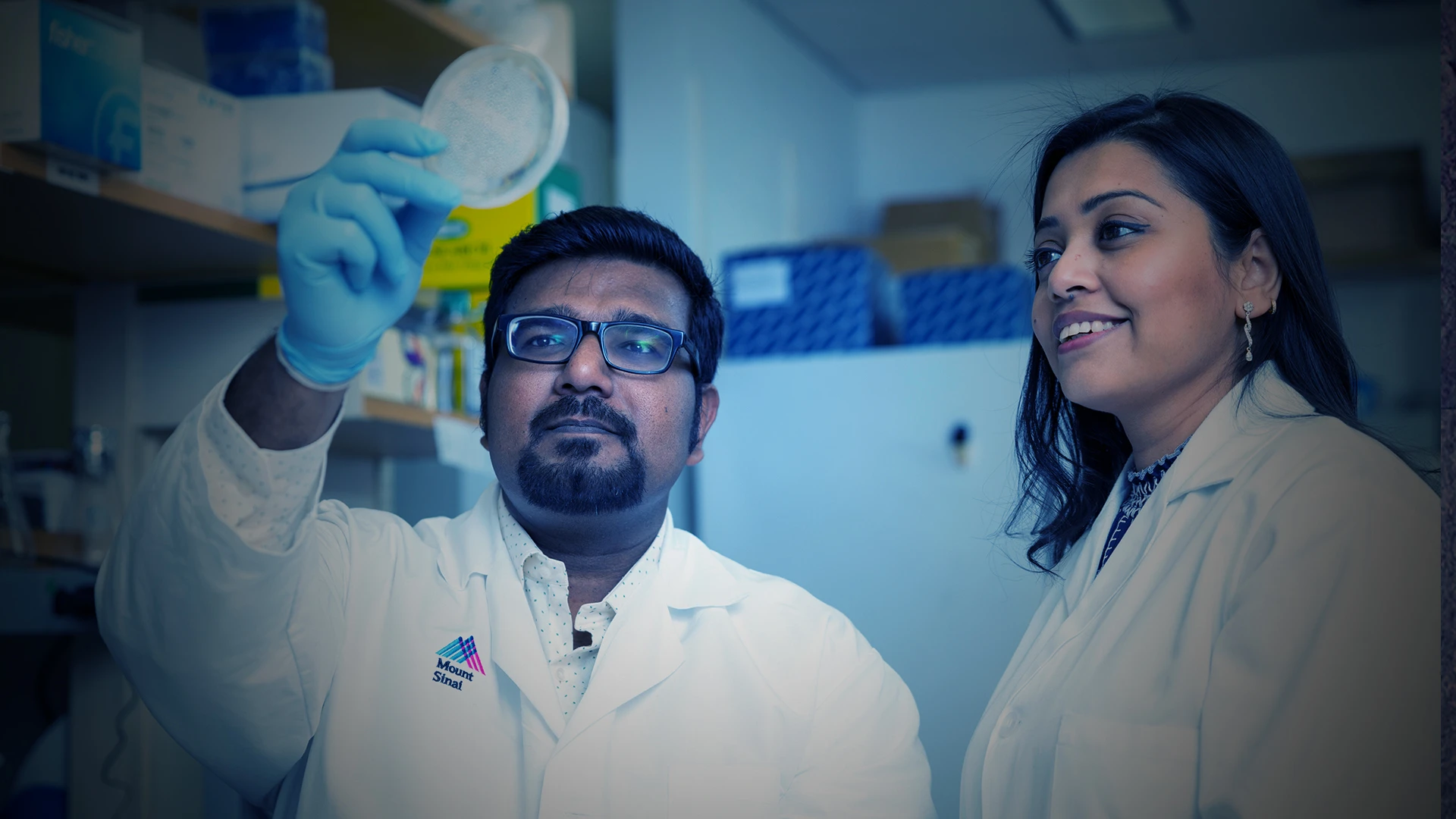Enzymes such as stearoyl coenzyme A desaturase 1, known as SCD1, are associated with the deregulation of cellular metabolism—a hallmark of cancer—making them attractive anticancer targets. Triparna Sen, PhD, Associate Professor of Oncological Sciences at the Icahn School of Medicine at Mount Sinai, has committed her lab to uncovering vulnerabilities of subsets of lung cancers that can be therapeutically targeted. In a recent review, published in Trends in Cancer in April 2023, she delved into the multifaceted roles of SCD1, including its functionality and expression, and how that knowledge could potentially pave the way for important new pharmacotherapies.
SCD1 catalyzes the conversion of saturated fatty acids (SFAs) into monounsaturated fatty acids (MUFAs) and is a critical modulator of the fatty acid metabolic pathway. “SCD1 plays a very important role in preserving cellular homeostasis, cell proliferation, and survival by maintaining the SFA-to-MUFA ratio,” says Dr. Sen, lead author of the study and Director of the Lung Cancer Patient-Derived Xenograft (PDX) Platform at Icahn Mount Sinai. As dividing cells expand their fatty acid reservoir to conserve their function in daughter cells, an increase in the content of lipids enriched with MUFAs and the simultaneous decrease of the levels of SFAs and polyunsaturated fatty acids have been found in several tumor cells, including breast, lung, colorectal, gastric, esophageal, and thyroid.

Members of the Sen Lab, from left to right: postdoctoral fellow Avisek Banerjee, PhD; research associate Yazhini Mahendravarman, MS; postdoctoral fellow Subhamoy Chakraborty, PhD; postdoctoral fellow Utsav Sen, PhD; postdoctoral fellow Yosuke Dotsu, MD; and principal investigator Triparna Sen, PhD.
“What cancer cells are so good at doing, however, is dysregulating metabolism and fatty acid synthesis,” says Dr. Sen. Certain subtypes of aggressive lung cancer, such as those with KRAS/STK11/KEAP1 co-mutations, have overexpressed levels of SCD1, and dysregulate ferroptosis, an intracellular iron-dependent form of cell death. Disruption of this stress response mechanism provides biological protection to lung cancer cells by enabling them to escape death.

SCD1 has been found expressed in a wide range of cancers. Dr. Sen’s focus on how the enzyme disrupts a cell death mechanism known as ferroptosis could be applicable across multiple cancer treatment paradigms.
A growing body of evidence from the Sen Lab and others working on SCD1 as a regulator of ferroptosis-mediated cell death has led to efforts by the research community to make ferroptosis induction an important therapeutic target in cancer. While the field has tested multiple SCD1 inhibitors in preclinical cancer models in the past, and candidates did decrease the viability of cancer cells in vitro and tumor growth in vivo for multiple cancer types, the translation of these compounds into the clinic has been generally discouraging.

While the field has been aware of the role of SCD1 on fatty acid metabolism, the studies that Dr. Triparna Sen (left) and Dr. Utsav Sen (right) are doing draw closer ties between the enzyme and homeostasis, cell proliferation, and survival.

Dr. Sen (right) and Dr. Dotsu (left) explore the effect of targeting SCD1 in a wide variety of cell lines and mouse models. They identified that an aggressive subtype of lung cancer is particularly sensitive to SCD1 inhibition.
“We attribute that disconnect to multiple factors, including an incomplete understanding of the target and its interactions with cancer cell-intrinsic signaling and the tumor environment, as well as the lack of biomarkers to select the optimal patient population that could benefit from SCD1 inhibition,” says Dr. Sen. What distinguishes her approach is targeting SCD1 with more potent and selective drugs—which could be a combination of standard-of-care chemotherapy, immunotherapy, and ferroptosis inducers—to appropriately modulate the complex tumor microenvironment, coupled with predictive biomarkers and a focus on disease subsets that are uniquely dependent on SCD1 for survival.

Beyond characterizing the mechanisms of SCD1, Dr. Sen is exploring further ties of the enzyme and immune system evasion. Findings from her research can be explored in conjunction with checkpoint inhibitors in various cancers, augmenting current treatment response rates.
Dr. Sen’s team is also exploring emerging evidence that shows a link between SCD1 and immune system evasion, with the implication that targeting SCD1 could augment the antitumor response to immune checkpoint inhibitors, which are often co-opted by cancer cells to evade immune detection. “Immune evasion by cancer cells is a major stumbling block to designing better anticancer therapeutic strategies,” Dr. Sen points out, “and by focusing on this critical area of drug resistance in the years ahead, we hope to move the science behind lung and other types of cancer significantly forward.”
Featured

Triparna Sen, PhD
Associate Professor of Oncological Sciences; Co-Director of the Lung Cancer PDX Program
